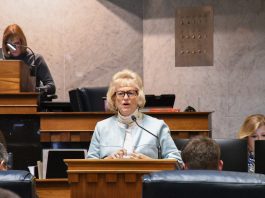Jennifer Nelson for www.theindianalawyer.com
Tackling an issue of first impression involving a request for payment of post-secondary education expenses, the Indiana Court of Appeals held that a child support order under I.C. 31-16-6-6 refers to the parties’ most recent order concerning support.
Amanda Lee Austin filed a petition Feb. 28, 2014, for her ex-husband, Michael Dwain Neal, to pay college expenses for their second child, A.N., who at that time was 19 years old. He asked the trial court to deny her petition because A.N. had been emancipated by law when she turned 19 on Jan. 30, 2014.
The trial court ordered Neal pay for a portion of A.N.’s college expenses. He appealed in Michael Dwain Neal v. Amanda Lee Austin, 49A02-1404-DR-225, and the Court of Appeals unanimously reversed.
The judges looked at the language of I.C. 31-16-6-6, which was amended effective July 1, 2012, to change emancipation age and at what age a parent was no longer responsible for paying for college expenses. In order to make their decision, the judges had to decide what the Legislature meant when it referred to established child support orders. They noted it was an ambiguous term.
Neal argued subsection (d) barred Austin from filing the petition. It reads: If a court has established a duty to support a child in a court order issued after June 30, 2012, the: parent or guardian of the child; or child; may file a petition for educational needs until the child becomes nineteen (19) years of age.†He claimed because A.N. already was 19 and the most recent agreed child support order was approved after June 30, 2012, Austin’s petition is barred.
The two divorced in 2000 and a support order was entered then; an agreed order was approved by the trial court in July 2012, in which the older child, who was 20 at the time, was considered emancipated.
The judges decided that the statute necessitates that where the most recent order establishing a child support obligation was issued after June 30, 2012, the child must file a petition for educational needs before becoming 19.
“Mother and A.N. are not the sort of unsuspecting parties that we believe the General Assembly’s 2013 amendments were focused on. Here, subsequent to the 2012 amendment, Mother participated in the court system and obtained a support order (i.e. the Agreed Order) that specifically referenced the updated statute’s effect of establishing nineteen as the age of legal emancipation. Thus, Mother was aware of the statute’s requirement that a petition for educational support must be filed before A.N. turned nineteen,†Judge Margret Robb wrote.




It’s really very complex in this busy life to listen news on TV, thus
I just use internet for that reason, and obtain the latest information.
Hello, all is going well here and ofcourse every one is sharing data, that’s really excellent, keep up writing.
It is really a nice and useful piece of information. I’m happy that you simply shared this helpful information with us.
Please stay us up to date like this. Thanks for sharing.
I was wondering if you ever considered changing the page layout of your site?
Its very well written; I love what youve got to say. But maybe
you could a little more in the way of content so people could connect
with it better. Youve got an awful lot of text for
only having 1 or two images. Maybe you could space it out better?
Comments are closed.